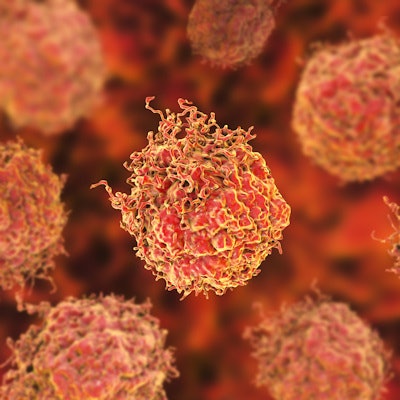
Taking into account genetic factors that cause prostate-specific antigen (PSA) level changes could improve the detection of prostate cancer, according to research presented at the American Association for Cancer Research (AACR) meeting in New Orleans.
Presenter Linda Kachuri, PhD, of the University of California, San Francisco, and colleagues investigated whether particular genetic factors could cause variations in PSA levels that are not due to cancer, and whether accounting for these could improve PSA testing. They conducted a study that included 95,000 men with diagnosed prostate cancer from cohorts in the U.S., the U.K., and Sweden and identified 128 PSA-associated variants they used to "build a polygenic score for PSA levels."
In two cohorts of prostate cancer prevention trials, the team found that this more nuanced score accounted for 7.3% and 8.7% of variation in baseline PSA levels and was not associated with prostate cancer.
The investigators then applied this polygenic PSA score correction to data from a cohort of Kaiser Permanente patients and found the following:
- Applying it would have avoided 20% of negative biopsies in cases that did not turn out to be prostate cancer.
- Applying it would have resulted in 15.7% fewer biopsies for low-grade disease.
"We showed that genetic correction of PSA levels has the potential to both reduce unnecessary biopsies and improve our ability to detect tumors with a more aggressive profile," Kachuri said in a statement released by the AACR. "We hope that our findings represent a step forward in developing informative screening guidelines and reducing the diagnostic gray area in PSA screening."



















